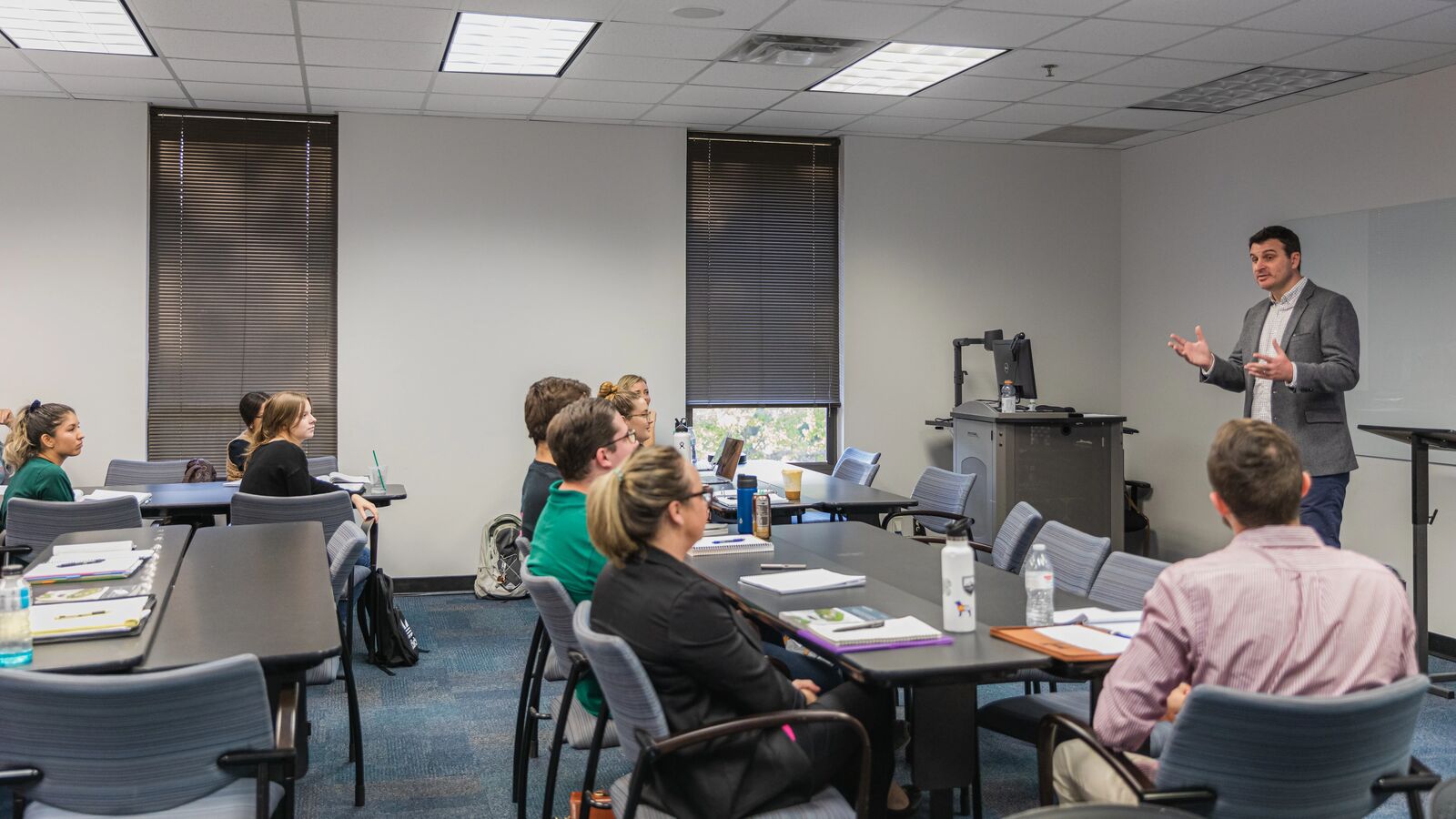Transform Education in Texas
To many, the state of today’s education system is concerning. Challenges from students unable to read at grade level to teacher shortages, limited budgets or outdated infrastructure can feel insurmountable. Where others see struggling schools, you see potential and strive to develop new solutions related to student outcomes, professional development and community engagement. The University of Texas at Tyler’s Doctor of Education in school improvement equips you with the leadership skills to transform your school or district into an effective and supportive learning environment.
Designed for educational leaders in Texas public schools, this program focuses on rigorous research training and data-driven strategies to help failing and at-risk schools thrive. Apply what you learn to implement innovative initiatives as a teacher, counselor or administrator.
Why Earn a Doctor of Education in School Improvement From UT Tyler?
After deepening your knowledge with a master’s degree in education, become an authority in your area of expertise with a doctorate. Immerse yourself in groundbreaking change theories and critical analysis to evaluate a school’s performance. Master quantitative and qualitative methods to conduct your own studies and contribute new insight to the field. Whether you want to build your body of work as a researcher, fulfill leadership roles in your current organization or bring your expertise to the public and private sector, UT Tyler’s EdD in school improvement prepares you to meet each challenge with a data-driven, innovative approach.
The Doctor of Education in school improvement helps you reach your professional goals through a unique approach:
- 100% Online: Earn a degree while continuing to meet your work obligations. Since all coursework is online, you can make progress on your own time and from any location.
- Exclusive: There are only five school improvement doctoral programs in the country, and ours is the only online offering in Texas.
- Local Impact: Our program emphasizes the unique challenges and characteristics of the Texas public school system. Apply what you learn throughout the program directly to your own community.
- Hands-on Leadership Program: Go beyond evaluation and assessments, and learn the practical skills to design, implement and execute strategic approaches to school improvements.
- Collaborative: Find support and camaraderie with your cohort, composed of other educational professionals with similar goals. The program’s interactive and interdisciplinary format encourages team-based problem-solving methods.
- Experienced Faculty: Our professors offer unparalleled guidance and bring real-world insights from their careers as educators, high-level administrators, principals and superintendents.
- Research Intensive: Devote a quarter of your credits toward acquiring advanced skills in quantitative methods, data-driven strategy, design-based implementation research and other current tools.
- Affordable: Our tuition is among the most affordable in the state. We work with you to offset the cost of your education through financial aid.
Curriculum
The EdD in school improvement consists of 60 credit hours: 30 credit hours toward school improvement coursework, 15 credit hours in research and statistics and the remaining for a dissertation and summer residency. Coursework expands a student’s understanding of data-driven planning, coaching, culturally respective practices, improvement science, education policy, community engagement, mixed-methods research design, statistical analysis and more.
Through the school improvement policy residency, access the opportunity to discuss contemporary education issues and their solutions with current leaders in the field. At the end of your studies, you defend a dissertation based on your own original research on a school improvement topic. An annual five-day summer workshop helps you hone your research proposal and skills for the successful completion of your dissertation.
The EdD in school improvement strengthens your ability to:
- Understand and address the philosophical and historical perspectives of school reform and learning opportunities for all through a variety of strategies.
- Lead radical transformations in schools through the critical application of improvement science and change theories that best address that particular institution.
- Base strategic decisions on data and critical analysis while encouraging collaboration, problem-solving and creativity among team members.
- Maximize the school’s potential — including that of students, teachers and administrators — through research-driven strategies and effective responsiveness.
Review All Course Descriptions for the EdD in School Improvement
Careers in School Improvement
A doctorate in school improvement prepares you for leadership roles in public school
districts, government agencies, higher education and the private sector. The Bureau
of Labor Statistics expects the employment outlook for principals to grow by 5% in the next decade. Meanwhile, as current school leaders retire or pivot to other careers, other leadership
positions are expected to emerge. An EdD also prepares you for research and faculty
positions in academia.
Potential job titles include:
- Assistant Principal
- Curriculum Specialist
- Curriculum Supervisor
- Director of Curriculum
- Director of School Improvement
- Education Consultant
- Principal
- Superintendent



